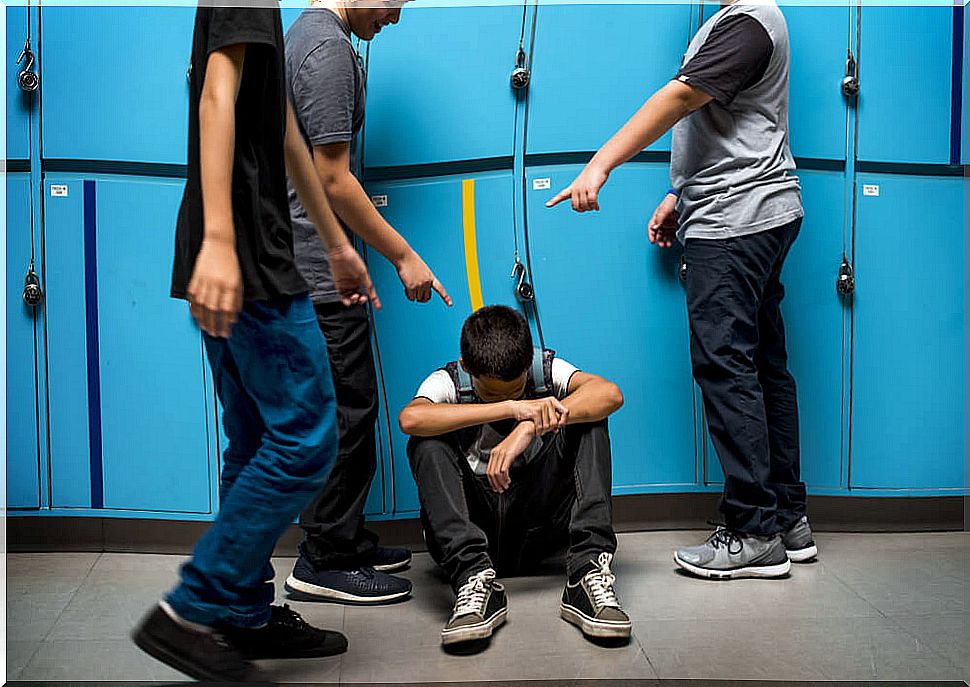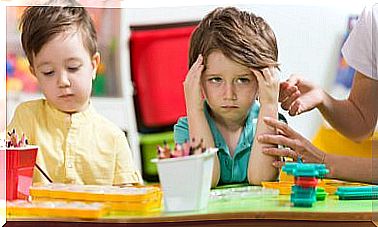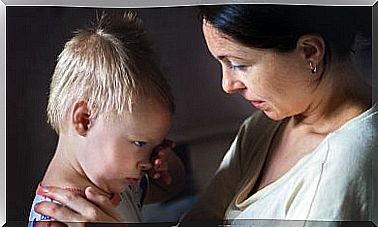My Son Has Trouble Making Friends
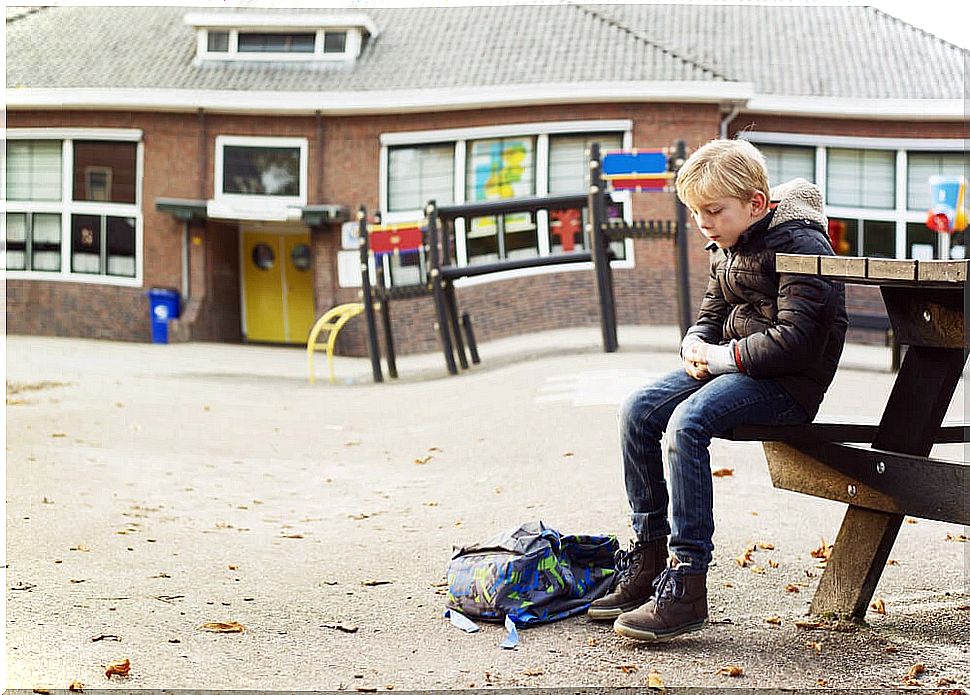
Friendship is important in all stages of life. However, enjoying a healthy and active social life from childhood will improve confidence and self-esteem. Most children have no difficulty establishing relationships with their peers. However, your child may have trouble making friends. If so, this article may interest you.
It is essential that our son is clear about the concept of friendship, and what it means. The basic components of this are:
- Love towards the other.
- Reciprocity and mutual support. Know that the other feels the same union with us, and that it is unconditional.
- Trust and sincerity. We can tell everything that concerns us, without being judged or making evaluations. But you will have the confidence to give us your honest feedback.
- The search. There is a mutual interest and concern. This leads them to communicate, spend time together, or get to know each other.
Before trying to solve the problems of the children to make friends, it is useful to know what the real cause may be. Next, we list some of the possible situations that may arise.

Why does my child have trouble making friends?
Maturation
The ability to make friends is a maturing process. This is reached around 4-5 years, although each child has his own rhythm, and may depend on other factors.
Personality factors, one of the possible factors why your child has trouble making friends
An introverted child tends to seek moments of loneliness, even to flee from the company of others ; the hustle and bustle overwhelms him. On the other hand, the shy child (or with low self-esteem) will be insecure, waiting for others to take the first step; It will be difficult for you to express your preferences and you will get carried away.
Behavior problems
A child with a lack of limits, capricious or aggressive will have many difficulties when it comes to making friends. Others will not feel comfortable in his company and will avoid sharing his games with him.
Physical difficulties (language, hearing, mobility …)
These difficulties can cause problems in our children’s communication with others. This will cause the rest of the children (not sensitized) to see it differently and do not want, or do not know, to interact with it. In the same way, our child may not feel understood. Thus, it is difficult to establish a good relationship.
Hyperactivity or attention problems
These children appear to be very disruptive or may appear uninterested in others. They can produce rejection among equals, even in other parents.
Children with High Abilities
Some children with above average cognitive ability may feel that they do not fit in with their peers. It is difficult for them to find peers who share their interests and way of understanding life. This will make them feel out of place, misunderstood, and even rejected.
Children who are bullied
Being abused or ignored at school will make your self-esteem very low. It will be difficult for them to trust others, and they will avoid approaching new children for fear of teasing and abuse.
My son has trouble making friends. How can I avoid it?
Children learn socialization and the value of friendship through parents. We are the best example you can have. We must listen to them, know what they need, how they feel and how they act with the other children.
Some tips to help our son overcome the problems he may have when making friends are:
- Share social situations with friends, that is, let your child learn social skills through your experience. Make sure that in these meetings there are children his age with whom he can share experiences and games.
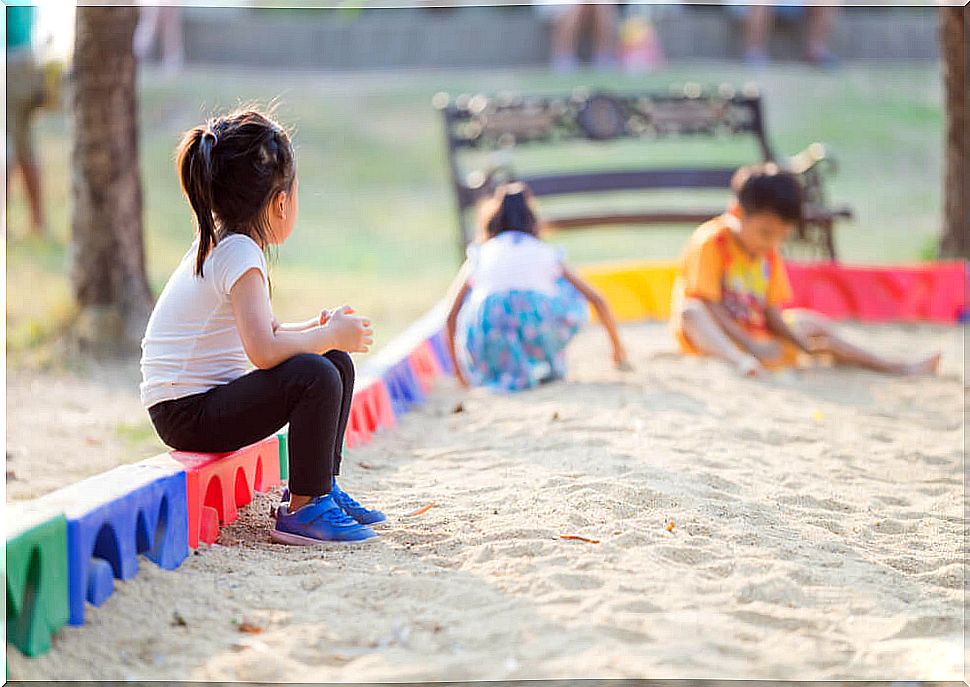
- Talk about the meaning of friendship. Make him understand that not everyone is a friend, and that he may be disappointed. Explain that not all friends last forever, but that there are others that do, that everything will depend on personal circumstances and the type of relationship that is established.
- Ask him about the children he knows and what kind of relationship he has with them. Shows interest in what he thinks about others and how he feels about his peers. It facilitates communication with him and fosters his security and empathy.
- Look for extracurricular activities that interest him or take him to meetings where there are children with the same tastes and interests. In this way, it will be easier for them to feel integrated and be encouraged to go to more social events with their peers.
- Help him resolve conflicts that may arise in your relationships, but do not actively intervene unless necessary. Teach him tools to solve his problems on his own. In this way, you will increase your self-esteem and gain independence.
- In the event that your child is experiencing bullying, inform the school and take the appropriate measures.
